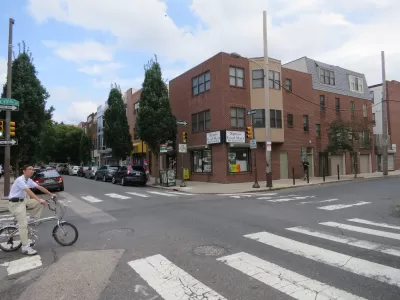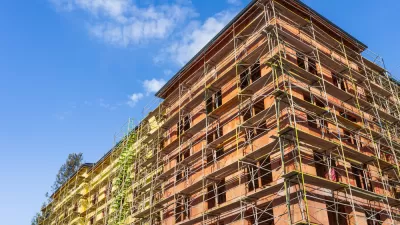Resistance mounts to the zoning reforms gaining traction in the United States.

For the past several months, much of the news regarding planning and zoning in the United States has focused on reform efforts designed to loosen the restrictions of single-family and exclusionary zoning.
Count the city that invented single-family zoning—Berkeley, California—among the local jurisdictions to follow the lead of the city of Minneapolis in moving forward with the idea of allowing new forms of density in residential neighborhoods as a prescription for the racial segregation of zoning's history and the increasing cost of housing in contemporary times. The idea of reform is also catching on at the state level, such as in Oregon and Connecticut, as well as the federal level, where the Biden administration and bipartisan legislation in the Senate have proposed funding for cities looking to add housing supply by removing zoning restrictions.
Amidst this context, which threatens to overturn a status quo that has governed the use and development of land in the United States for more than a century, some voices in the media are voicing concern about the consequences of a more permissible approach to development density.
In Atlanta, for instance, Bob Irvin writes to oppose changes included in a package of reforms proposed by Mayor Keisha Bottoms as the Atlanta City Design: Housing initiative. Irvin's argument voices support for zoning thusly:
I do know what zoning does now. It protects homeowners of all races and economic levels. It protects their neighborhoods. It protects their families. It protects their largest investment. It protects their lifestyle. It protects our city.
In another article, Philadelphia Inquirer Architecture Critic Inga Saffron scrutinizes two controversial development proposals, producing this verdict: "one is going about creating density the right way, and the other is doing it all wrong." To frame the argument about the potential drawbacks of density, Saffron suggests that NIMBYs and YIMBYs are "mirror images, absolutists who see the world in stark black and white."
"It’s not unusual to hear YIMBYs declare that neighborhood character is irrelevant. They insist that any new apartment building is a blow for justice, no matter how grotesque its design. They seem incapable of understanding that it’s deeply human to care about what our surroundings look like. Context and details matter, and that’s why it’s worth examining these two midrise projects if we hope to win the hearts and minds of density skeptics," writes Saffron, allowing for more sympathy for the zoning reform cause than expressed by Irvin while also reclaiming the cause of neighborhood protection.
Saffron and Irvin aren't the only writers trying to slow the momentum of pro-development zoning reforms. Pierluigi Olivero, a member of the San Jose Planning Commission and a former San Jose City Councilman, also recently wrote an opinion piece suggesting that the idea of ending single-family zoning is too extreme. The city of Cleveland is also currently embroiled in controversy over the unintended consequences of zoning changes that allowed new townhome developments in residential developments.
FULL STORY: Housing advocates see denser buildings as an answer to affordability. But not all density is good density.

Planetizen Federal Action Tracker
A weekly monitor of how Trump’s orders and actions are impacting planners and planning in America.

Map: Where Senate Republicans Want to Sell Your Public Lands
For public land advocates, the Senate Republicans’ proposal to sell millions of acres of public land in the West is “the biggest fight of their careers.”

Restaurant Patios Were a Pandemic Win — Why Were They so Hard to Keep?
Social distancing requirements and changes in travel patterns prompted cities to pilot new uses for street and sidewalk space. Then it got complicated.

Platform Pilsner: Vancouver Transit Agency Releases... a Beer?
TransLink will receive a portion of every sale of the four-pack.

Toronto Weighs Cheaper Transit, Parking Hikes for Major Events
Special event rates would take effect during large festivals, sports games and concerts to ‘discourage driving, manage congestion and free up space for transit.”

Berlin to Consider Car-Free Zone Larger Than Manhattan
The area bound by the 22-mile Ringbahn would still allow 12 uses of a private automobile per year per person, and several other exemptions.
Urban Design for Planners 1: Software Tools
This six-course series explores essential urban design concepts using open source software and equips planners with the tools they need to participate fully in the urban design process.
Planning for Universal Design
Learn the tools for implementing Universal Design in planning regulations.
Heyer Gruel & Associates PA
JM Goldson LLC
Custer County Colorado
City of Camden Redevelopment Agency
City of Astoria
Transportation Research & Education Center (TREC) at Portland State University
Camden Redevelopment Agency
City of Claremont
Municipality of Princeton (NJ)





























